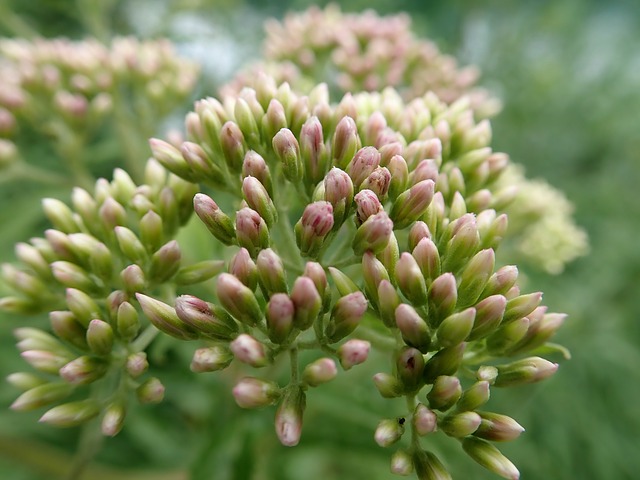Gravel Root

Also known as Eupatorium purpureum, Gravelweed, Joe-Pye Weed, Jopi Weed, Kidney Root, Purple Boneset, Queen-of-the-Meadow Root, and Trumpet Weed.
Introduction Gravel root is a native of the North American continent, growing from southern Canada through Florida, mostly in wet, wooded areas. It was used largely to treat urinary problems, especially kidney stones or gravel. It is also used in traditional medicine to reduce fever, increase urination, induce sweating to break a fever, and as a general tonic during pregnancy and after childbirth.
Constituents Volatile oils
Parts Used Root
Typical Preparations As tea, in capsules and as an extract.
Summary The Iroquois called a decoction of gravel root "little medicine water" because of its healing properties. The herb is a diuretic, astringent, anti-inflammatory, and febrifuge. It may be used to ease urination in cases where kidney stones are present, and can help relieve edema associated with gout and rheumatism. The tea may help break a fever by encouraging sweating, and is often used to treat diseases of the urogenital tract. Other Native American uses have included relieving constipation, washing wounds with a strong tea made from the root to prevent infection and as a general tonic taken during pregnancy and after childbirth. PLEASE NOTE! The internal use while pregnant was historically practiced by native peoples, but its current use while pregnant is not recommended.
Precautions Not recommended while pregnant.
For educational purposes only. This information has not been evaluated by the Food and Drug Administration. This information is not intended to diagnose, treat, cure, or prevent any disease.
This information courtesy of MOUNTAIN ROSE HERBS, with full, written permission for reuse. For further traditional information concerning Gravel Root, please visit this excellent resource from Botanical.com. Used with full, written permission.






